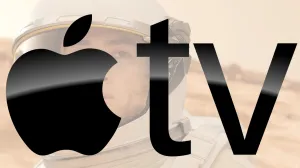With new series coming to Disney+ based on the characters of Moon Knight and Ms. Marvel, fans have started debating the degree to which the characters’ religion is important to their characterization, and whether those things “have” to be included in their presentation. And while the conversation itself is not a bad one to have, it seems incredibly unlikely that, at a minimum, Ms. Marvel won’t heavily feature the title character’s religion. Let’s try and break down some of the arguments, and why it seems almost impossible to separate religion from certain characters, beginning with Kamala Khan, since there are some elements of her personality that make it harder to avoid.
Videos by ComicBook.com
For those who don’t know, Kamala Khan is a teenage superheroine, and a Pakistani-American Muslim. Inspired by Carol Danvers (Captain Marvel) and infused with super-powers from her Inhuman blood, Khan took on the name of Ms. Marvel and ever since has been one of Marvel’s most well-known teenage characters. With both Tony Stark (Robert Downey, Jr.) and Peter Parker (Tom Holland) gone, and Carol Danvers (Brie Larson) poised to take on a bigger role in the Marvel Cinematic Universe going forward, it seems likely that most of this origin story will remain intact, and some fans assumed immediately after the D23 announcement that Ms. Marvel was coming, that she could take the place of Spidey as the star-struck, doe-eyed young hero of the MCU.
Ms. Marvel’s creation was spearheaded by editors Sana Amanat and Stephen Wacker, and Amanat said that she wanted to reflect Pakistani and Muslim culture in the comic from the get-go. Writer G. Willow Wilson, herself a practicing Muslim, was brought on board to help create the character, along with artists Adrian Alphona and Jamie McKelvie. The fact that her Muslim faith was part of her identity from creation is one aspect of why you could argue that it’s a necessary element of her character. Even beyond that is the unique (to the MCU) circumstance of being a teenager. Kamala is living in her parents’ home and beholden to their rules, which means having a casual faith that exists offscreen (like, for instance, Captain America was implied to have had) does not fit into her character as well.
In an early interview, Wilson said, “This is not evangelism. It was really important for me to portray Kamala as someone who is struggling with her faith….Her brother is extremely conservative, her mom is paranoid that she’s going to touch a boy and get pregnant, and her father wants her to concentrate on her studies and become a doctor.” If all of that sounds familiar, it’s because that is a common experience for young Muslims, and one that you can see shared in Hollywood stories fairly often. The recent film Blinded By the Light, about the collision of traditional Pakistani-Muslim values with American pop culture in the life of a British teen, is a great example.
Like DC’s Jaime Reyes/Blue Beetle, the family dynamic is a lot of what makes Kamala so appealing — and in a world where Marvel has not yet established a lot of young characters, Ms. Marvel may be a rare opportunity to tell stories that don’t spend almost 100% of their screen time in the world of superheroics. The decision, made early on in the MCU, to largely abandon secret identities and civilian lives and to characterize the Avengers as a quasi-governmental organization left a hole in the MCU that Kamala’s character could fill — but in so doing, it would mean that the show would have to grapple with her family’s dynamic. To ignore that dynamic would strip her of a lot of her personality and render her just another new face in a sea of incoming new faces to the MCU post-Endgame.
Nobody expects Islam to be the primary focus of Ms. Marvel, but to omit it entirely would not be true to her character. It would rob her of part of what makes her who she is, even if other elements could be expanded to make up for some of it. Amanat said, shortly after the character was anounced, that Islam was an important part of Kamala’s life, but not the only important part. That will almost certainly be how it’s depicted onscreen, in much the same way Daredevil grappled with Matt Murdock’s Catholicism.
That leads to another point, though: while it might seem easy to label anybody who doesn’t want to see religion play a role in the upcoming Disney+ Marvel shows as bigoted or short-sighted — and likely some of them are — Marvel has conditioned fans to expect little in the way of religion, and you could see why some members of the audience wouldn’t expect it to be played up. Yes, Daredevil dealt with Matt’s faith, but the Netflix Marvel shows are seemingly being forgotten or retconned, and no other story besides Daredevil has tackled similar themes. One could argue that by transforming the Norse gods of Thor into powerful aliens with godlike qualities, the MCU has actually worked hard to avoid religion of any kind playing a prominent role in their shared superhero universe.
In all likelihood, this is done to make the MCU the biggest tent it can be: you aren’t alienating any particular group by giving credence to Christianity, Judaism, or even the Norse religions. You’re just kind of pretending that religion is not a significant part of the lives of most of the heroes we see onscreen. That is a pretty common explanation for the relative absence of overt religious lifestyles and iconography in mass entertainment: it is, by design, being made for the masses, which includes a variety of religious and secular backgrounds. Marvel could be seen as avoiding religion for the same reason it avoids a lot of the big themes of superhero comics: simply to universalize the stories.
That is the argument some reasonable people could make for minimizing or eliminating the role of religion in the MCU, and while I find it less than compelling, it’s understandable why it would be appealing to some audiences. It might be more plausible with Moon Knight‘s Marc Spector, who is a grown man and lives a lifestyle where he isn’t being told what he can and cannot do. Like Kamala, his religion is driven by his family ties — he is the son of a Rabbi — although his Jewish faith is rarely the centerpiece of any given Moon Knight story. It seems likely that he will have a version of Judaism more in line with what Marvel has done in the past, although if they play up his relationship with his father, he may lean more toward the Daredevil side of things in terms of its relevance to the story.
That Spector is not living with his family or beholden to his father gives them more flexibility to explore his faith, either in a straightforward way or by suggesting that he is estranged from his faith in some way. The role of spirituality in Moon Knight is also kind of strange in that he gets his powers from Egyptian artifacts that are tied to the moon god Khonsu. The conflict between his religion and the one that drives his nighttime activities provides ample story fodder and would be foolish to ignore, even if he is not depicted as especially devout. Again, you can draw the Daredevil comparison here. Dressing up as a literal devil bumps up against your Catholic faith in a way that being called “Iron Man” doesn’t.
Talking about the religions of Spector and Khan will inevitably raise the argument that the (presumably) Christian characters did not get much in the way of spiritual representation in their stories. This is certainly an understandable argument — religion as a whole gets a short shrift in mainstream entertainment — but it is a big misguided. It falls into the same category as the people who suggest that race- or gender-swapping one white/male character means somebody like Luke Cage should be made white to “make it even.” While most comic characters — especially those who fall into the white/straight/male/Christian “default settings” of Western media — are tangentially (if at all) defined by their whiteness/straightness/what-have-you, the relative lack of characters from different backgrounds means that most “diverse” characters have backstories that are closely tied to their cultural identities. Captain America may be a Christian, in other words, but it is not erasing his Christianity to make it largely unspoken, since Christianity is not especially important to who he is. Erasing the religion of somebody for whom it is a defining trait of their personality, such as a Rabbi’s son or a teenager struggling with a crisis of faith, is another matter entirely, and to treat the two as one is intellectually dishonest.
Whether or not Daredevil “counts” in the eyes of the studio, removing religious themes, lifestyles, and iconography from overtly religious characters from the comics would send a troubling message to casual fans, who would not necessarily understand the argument that the Netflix shows “got away” with something because they were overseen by a different group of people within Marvel. The optics of removing Marc Spector’s Judaism or Kamala Khan’s Muslim background would be bad, and would likely attract more conversation and more consternation than just including a couple of scenes here and there where the heroes engaged in religious activiites in the course of their daily lives.
Religion, after all, is important to the way a lot of people live their daily lives. Ignoring it completely is just as myopic as reveling in it is, in terms of narrative storytelling — and while many characters are not especially religious in the source material, Disney+ is taking on stories based on characters who are heavily informed by their spiritual journeys. Handled well, that can enrich not only their own stories but the larger Marvel Cinematic Universe as audiences get a sense for how real-world ideas like religion can be shaped and altered by the strange reality of the MCU.








